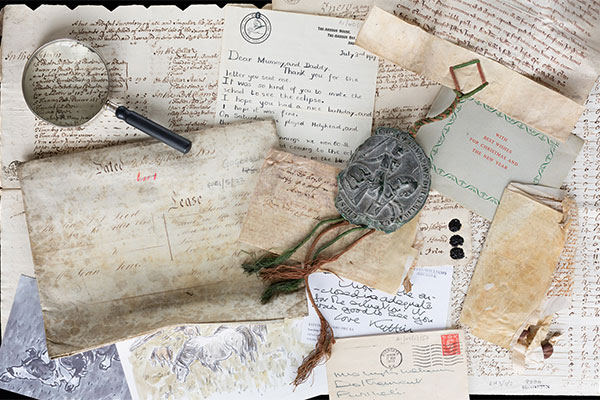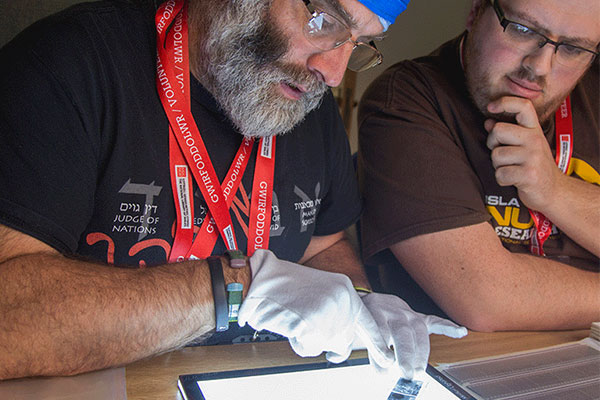Learning toolkit
Background
The Communities Wales project collaborated with Ethnic Minorities & Youth Support Team (EYST), young people from Cardiff (Lioness Community Projects) and Natalie Jones to create a podcast about identity, language, and culture. The aim of the project was to amplify voices historically unheard or marginalised discussing these topics by using items from the Library's collection to trigger discussions. There was also an emphasis on developing skills in creating a podcast by working with special equipment.
Extracts from the podcast:
Natalie Jones: "In 1985, when we moved to Pwllheli, there weren’t any other—I think there was one lady from Trinidad, a Black lady who was married to a white policeman. That’s the only other Black person I remember, and then her children of course. But they were all younger than me, so there was a point where I was the only Black kid in school. And I was always the only Black kid in my class. I never came across another Black teacher, Black staff member, or had a class with another Black child ever. Or in college, when I started after school, it was weird and hard to get used to. Especially as a teenager, you just want to fit in; you don’t want to stand out. So, despite the fact that I very much see myself as Welsh now, it wasn’t easy. Yeah, we definitely experienced racism—ignorant racism, in the form of ignorance as well, rather than –it wasn’t always overt racism. Sometimes it was ignorance and a lack of understanding. But it still has an effect on you; it still makes you feel like you don’t belong, like you’re ugly or strange, or that you don’t fit in."
--------------------------------
Young person: "For me, I agree with everything you’re saying about language being used as an identifier. As a Welsh person – I consider myself Welsh, even though I didn’t grow up here and don’t speak any Welsh. There are quite a few Welsh people who only speak English but still feel a connection to the language through songs, myths, and names. People might not necessarily speak Welsh fluently, but they’ll recognise it in a song or sing it. They’ll also recognise it in a name. So, I think that language is vital to any culture because it has such a rich history with those people."
Possible questions to discuss
- Do you identify as Welsh?
- How do you define being Welsh?
- Is language important to identity and culture?
- Does Welsh identity change from one area to another?
- What would you say is important to Welsh culture?
- What does the future look like in a diverse Wales?
Activities and experiences
- Research language, culture or identity in Wales
- Research your family history
- Record a podcast
Key concepts
(derived from the statements of what matters)
Languages, Literacy and Communication
- Listening with empathy and respect
- Listen and understand
- Understanding perspectives
Humanities
- Social and cultural importance
- Identity
- Social similarities and differentiation
- Understanding human rights
- Developing paths of enquiry







